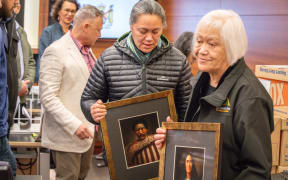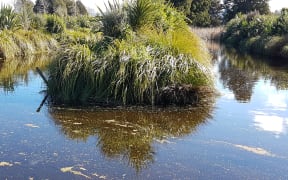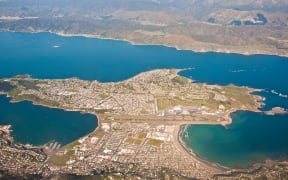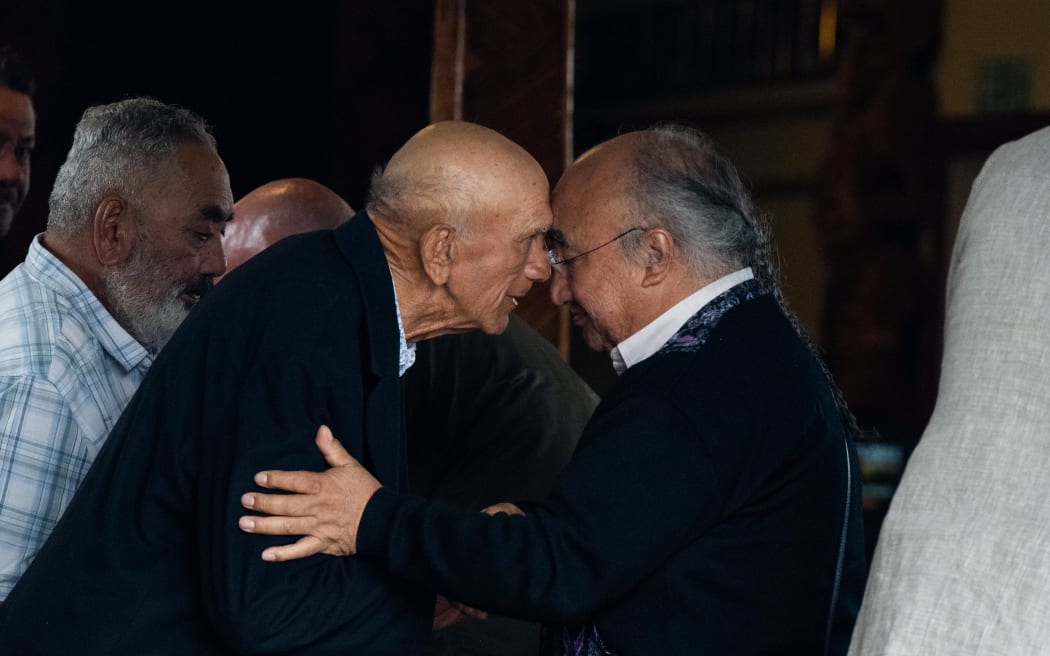
Kaumātua Rore Stafford's hongi with UN Special Rapporteur on the Rights of Indigenous Peoples Francisco Calí Tzay (right). Photo: Supplied / Melissa Banks Photographer
A United Nations indigenous rights expert has made a special visit to the top of the South Island to learn about the Nelson Tenths case and the Crown's breach of its legal obligations to Māori.
The UN Special Rapporteur on the Rights of Indigenous Peoples, Francisco Calí Tzay, met with representatives of the customary Māori owners of the Nelson Tenths Reserves at Te Āwhina Marae in Motueka, and visited several sites of significance in the region.
One of those was Kaiteriteri (Kaiteretere), where more than 180 years ago, the New Zealand Company and Māori chiefs agreed to European settlement in Nelson.
Calí Tzay walked along the beach's famous golden sands and heard about how the agreement to reserve ancestral land in the top of the South Island was never upheld.
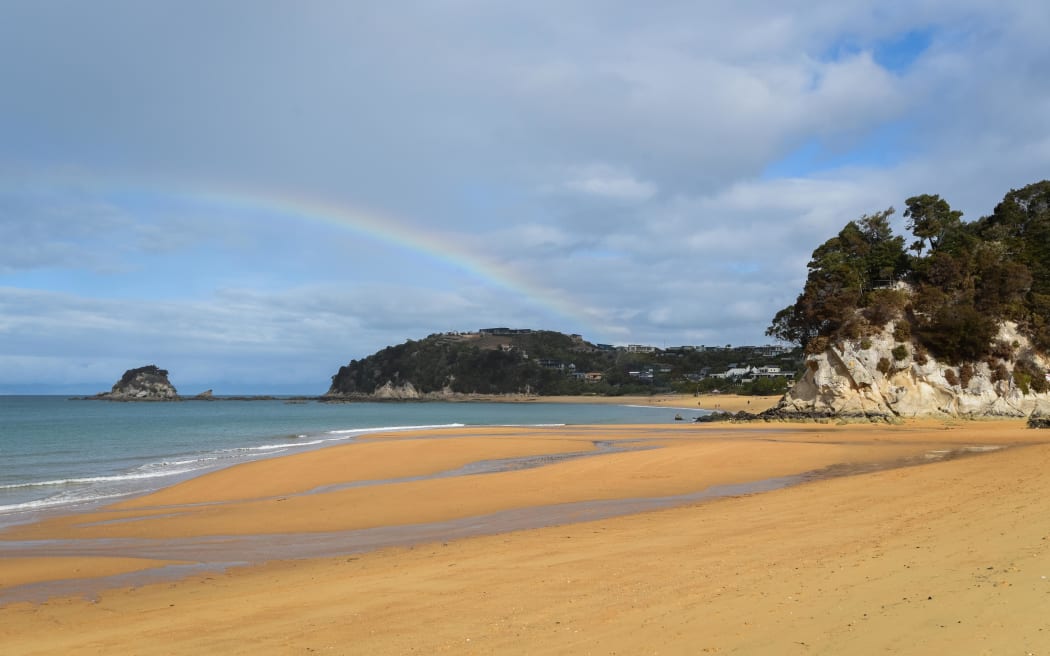
Kaiteriteri (Kaiteretere) Beach. Photo: Supplied / Melissa Banks Photographer
Te Here-ā-Nuku/Making the Tenths Whole project member Rōpata Taylor (Ngāti Rārua, Te Ātiawa, Ngāti Tama, Ngāti Koata) said it was at the edge of Te Tai-o-Aorere/Tasman Bay in 1841 that Māori sold 151,000 acres of land to the New Zealand Company - on the condition 10 percent of it would remain in their possession.
"Despite the fact that it's renowned as one of the world's top 10 beaches, its cultural significance is that it was the meeting place where our ancestors met the first Europeans.
"That agreed European settlement here is known as the Nelson Tenths and that is why it is such a poignant site for us."
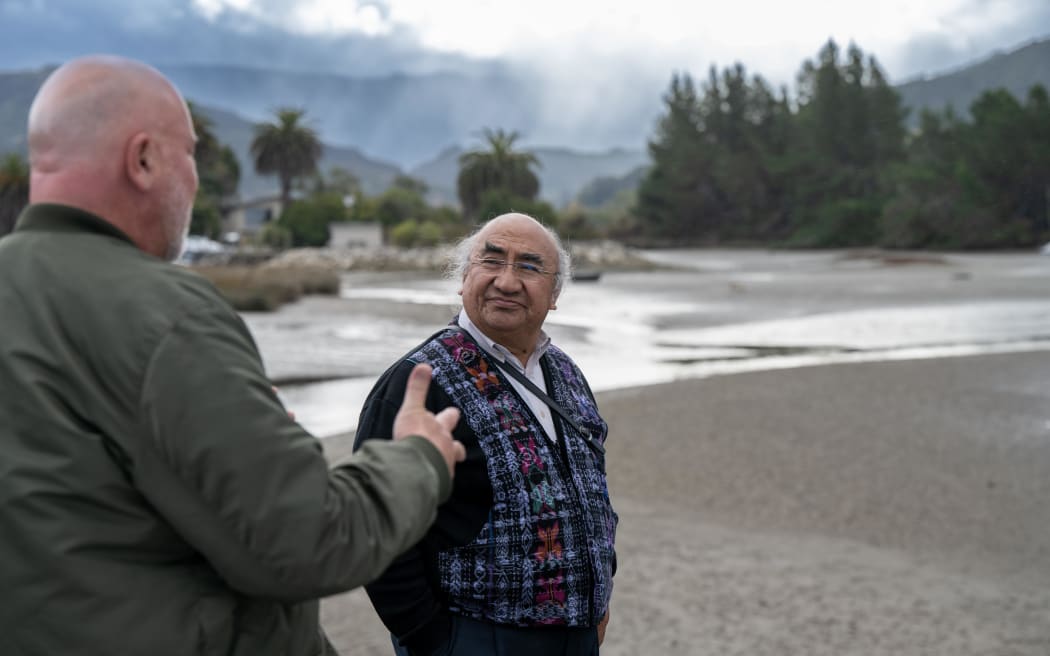
UN Special Rapporteur on the Rights of Indigenous Peoples Francisco Calí Tzay during a site visit to Riuwaka. Photo: Supplied / Melissa Banks Photographer
But instead of setting aside 15,100 acres as promised - the Crown reserved less than 3000.
"It's naturally very beautiful, but when I come here all I can really think about is the generations of cultural loss and land alienation that his place represents," Taylor said.
The Supreme Court ruled in 2017 the government must honour the land deal that was struck in the 1840s between the New Zealand Company and Māori - but it has not yet been resolved.
University of Auckland Te Puna Rangahau o Wai Ariki, Centre for Indigenous Peoples and the Law, director Claire Charters (Ngāti Whakaue, Tūwharetoa, Ngā Puhi, Tainui) said the case amounted to a serious miscarriage of justice.
"The big thing from a legal perspective is the finding of a private law duty, this is not about a treaty breach, it is based on trust law or property law ... then there is the scale of it, how much land is actually involved in the Nelson area."
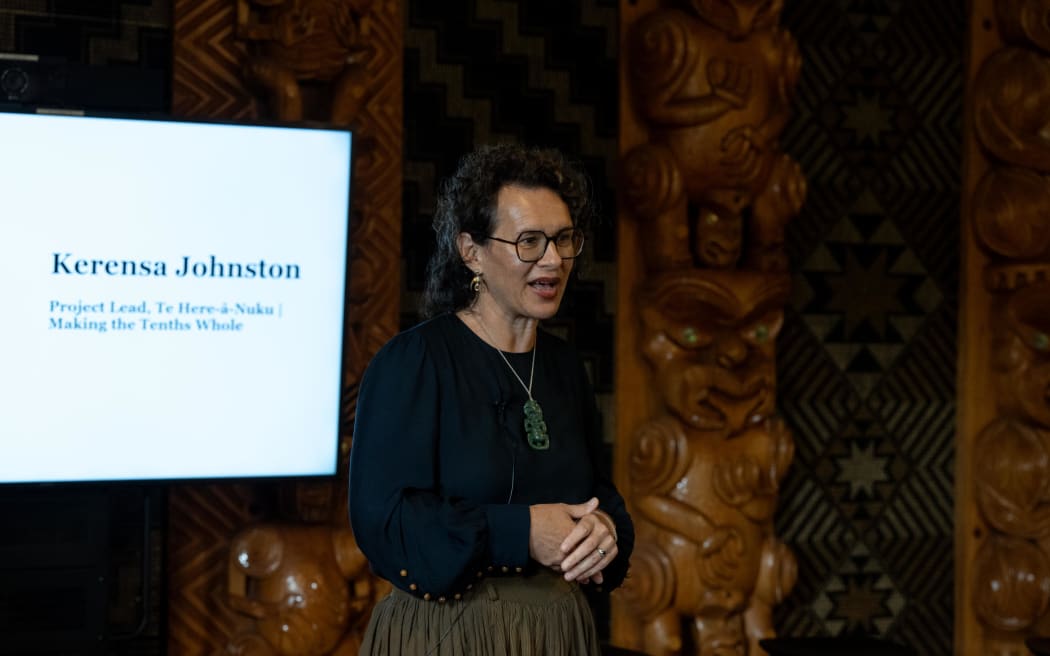
Wakatū Incorporation chief executive Kerensa Johnston speaking at Te Āwhina Marae in Motueka. Photo: Supplied / Melissa Banks Photographer
The ligitation has spanned more than 14 years, with the Crown spending millions to defend the case.
Prof Charters said the customary landowners were ultimately seeking a return of their land and compensation for the breach of their rights which originally occurred in the 1840s but would continue until it was resolved.
Wakatū Incorporation chief executive Kerensa Johnston (Ngāti Tama, Ngāruahine and Ngāti Whāwhakia) said the Special Rapporteur's visit was significant.
"He is an expert in international law as it relates to indigenous people, and so he is really bringing that lens to this issue, and he is helping us with the next steps as to how we resolve this for our community here."
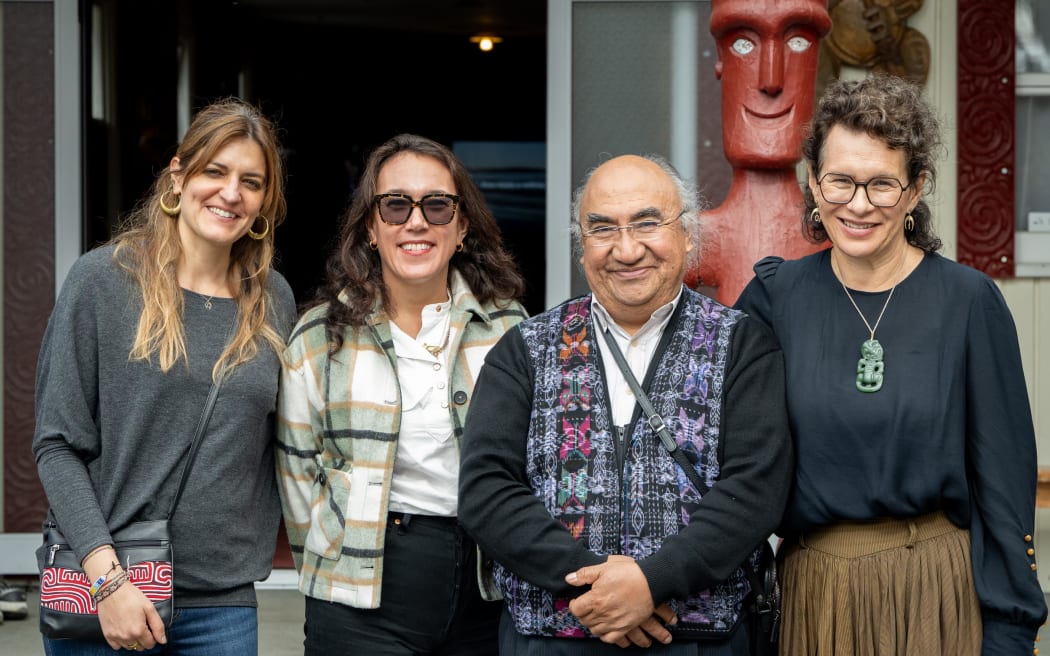
From left, external legal advisor to the Special Rapporteur Elisa Marchi, law professor Claire Charters, Special Rapporteur Francisco Calí Tzay, Wakatū Incorporation chief executive Kerensa Johnston at Te Āwhina Marae. Photo: Supplied / Melissa Banks Photographer
Wakatū Board chair Johnny McGregor (Te Ātiawa, Ngāti Rārua) said the long-running case illustrated the customary landowners commitment to the Māori culture and their whenua.
"We believe it's really important for this government to understand its obligations under the United Nations Declaration of the Rights of Indigenous Peoples, something they have signed up to, something that is really important in terms of how we look as New Zealanders, as Māori, to the international stage around us."
Calí Tzay is Maya Kaqchikel from Guatemala and has experience defending the rights of indigenous peoples, both in his homeland and at the United Nations.
While in New Zealand he will also meet with Wairarapa Moana, who have been fighting for the return of land occupied by the Maraetai power station in Waikato.
UN protocols during academic visits mean he is not permitted to speak to the media.
His visit comes ahead of New Zealand's human rights record being scrutinised before the United Nations Human Rights Council in Geneva, at its five-yearly review, at the end of April.

